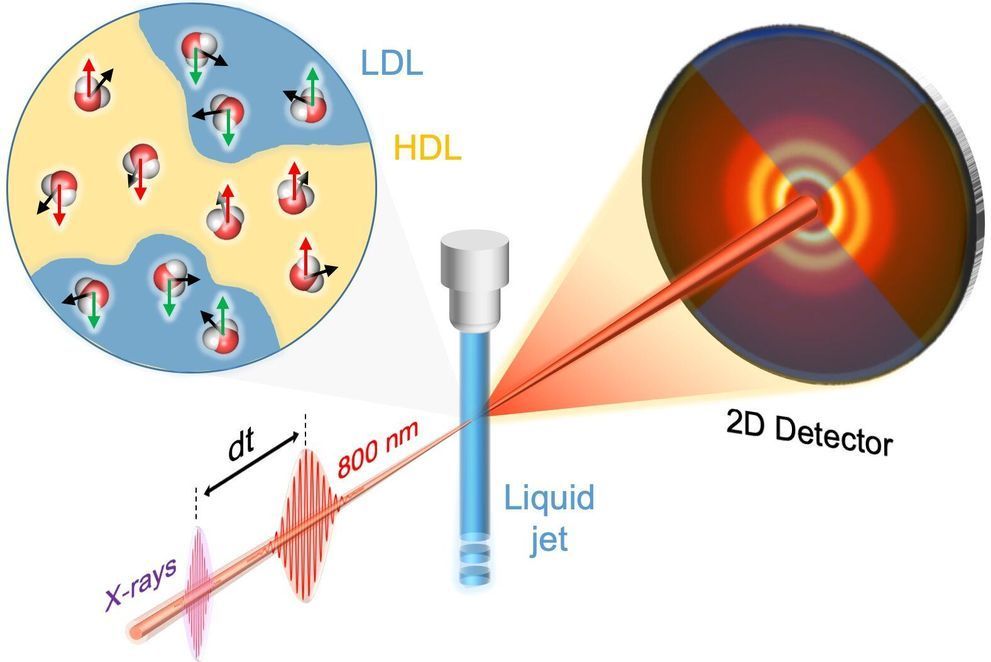Scientists at Stockholm University have discovered that water can exhibit a similar behavior to that of a liquid crystal when illuminated with laser light. This effect originates by the alignment of water molecules, which exhibit a mixture of low- and high-density domains that are more or less prone to alignment. The results, reported in Physics Review Letters, are based on a combination of experimental studies using X-ray lasers and molecular simulations.
Liquid crystals were considered a mere scientific curiosity when they were first discovered in 1888. Over 100 years later, they are one of the most widely used technologies, present in digital displays (LCDs) of watches, TVs and computer screens. Liquid crystals work by applying an electric field, which makes the neighboring molecules of a liquid align, in a way that resembles a crystal. Water too can be distorted towards a liquid crystal, when illuminated with laser light. It is known that the electric field of the laser can align the water molecules for less than a billionth of a second. Can this discovery have future technological applications?
An international team of researchers at the Physics Department of Stockholm University carried out experiments at Japan’s X-ray Free-electron laser SACLA and probed for the first time the dynamics of transiently oriented molecules using X-ray pulses. This technique, relies on aligning the molecules with a laser pulse (with wavelength λ = 800 nm) and probing the alignment with X-ray pulses, which allow to see in real time the changes in the structure on a molecular level. By varying the time between the laser and the X-ray pulses, the researchers were able to resolve the aligned state, which lives only for 160 fs.









Comments are closed.